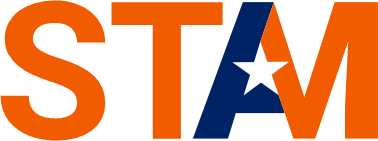- Unsecured Personal Loans
- No Collateral Required: These loans are not backed by any asset, making them riskier for lenders.
- Based on Creditworthiness: Approval and interest rates depend on the borrower’s credit score and income.
- Secured Personal Loans
- Collateral Required: Borrowers must provide an asset, such as a car or savings account, as collateral.
- Lower Interest Rates: These loans often have lower interest rates because they pose less risk to lenders.
- Fixed-Rate Personal Loans
- Consistent Payments: The interest rate remains the same throughout the loan term, ensuring predictable monthly payments.
- Budgeting Ease: Fixed rates make it easier to budget and plan for repayments.
- Variable-Rate Personal Loans
- Interest Rate Fluctuations: The interest rate can change over time based on market conditions.
- Potential Savings: Borrowers might benefit from lower initial rates, but there is a risk of rates increasing.
- Debt Consolidation Loans
- Combine Debts: These loans allow borrowers to combine multiple debts into a single loan with one monthly payment.
- Simplified Repayment: Consolidation can simplify repayment and potentially lower interest rates.
- Co-Signer Loans
- Shared Responsibility: A co-signer with good credit can help a borrower with poor credit secure a loan.
- Improved Approval Chances: Having a co-signer can increase the likelihood of loan approval and better terms.
Benefits of Personal Loans
- Versatile Use
- Flexible Purposes: Personal loans can be used for a wide range of financial needs, from home improvements to medical bills.
- Fixed Repayment Schedule
- Predictable Payments: Fixed monthly payments make it easier to budget and manage finances.
- Lower Interest Rates
- Compared to Credit Cards: Personal loans often have lower interest rates than credit cards, especially for borrowers with good credit.
- Credit Score Improvement
- Diverse Credit Mix: Adding a personal loan to your credit mix can positively impact your credit score.
- Timely Payments: Consistently making on-time payments can improve your credit history.
- Debt Consolidation
- Simplified Management: Consolidating multiple debts into one loan can simplify repayment and reduce stress.
- Potential Savings: Lower interest rates can lead to savings over the life of the loan.
Application Process
- Prequalification
- Estimate Loan Terms: Many lenders offer prequalification, which provides an estimate of loan terms without a hard credit check.
- Comparison Shopping: Use prequalification to compare offers from different lenders.
- Documentation
- Proof of Income: Provide recent pay stubs, tax returns, or bank statements.
- Credit Report: Ensure your credit report is accurate and up to date.
- Identification: Have government-issued ID ready, such as a driver’s license or passport.
- Debt Information: Provide details of existing debts if applying for a debt consolidation loan.
- Loan Application
- Submit Application: Complete the loan application with your personal, financial, and employment information.
- Credit Check: The lender will conduct a hard credit check, which may temporarily impact your credit score.
- Approval and Agreement
- Loan Offer: If approved, the lender will provide a loan offer detailing the amount, interest rate, and terms.
- Review Terms: Carefully review the loan agreement, including the repayment schedule and any fees.
- Sign Agreement: Sign the loan agreement to accept the terms and conditions.
- Disbursement
- Fund Transfer: The lender will disburse the loan funds, typically directly into your bank account.
- Use of Funds: Use the loan proceeds for the intended purpose, such as paying off debt or covering expenses.
Key Considerations
- Interest Rates and Fees
- Compare Rates: Shop around for the best interest rates and be aware of any fees, such as origination fees, prepayment penalties, and late fees.
- APR: Look at the Annual Percentage Rate (APR) to understand the total cost of the loan.
- Repayment Terms
- Loan Duration: Consider the length of the loan term and how it impacts the total cost of borrowing and monthly payments.
- Affordability: Ensure that monthly payments fit within your budget without causing financial strain.
- Credit Impact
- Credit Check: Be aware that applying for a loan involves a hard credit check, which can temporarily lower your credit score.
- Timely Payments: Making timely payments is crucial for maintaining a good credit score and avoiding additional costs.
- Loan Purpose
- Specific Needs: Ensure that the loan purpose aligns with your financial goals and needs.
- Loan Amount
- Borrow Responsibly: Only borrow what you need and can afford to repay to avoid unnecessary debt.
- Lender Reputation
- Research Lenders: Choose reputable lenders with positive customer reviews and transparent terms.
Conclusion
Personal loans are a flexible and accessible financing option for various financial needs. By understanding the types of personal loans available, their benefits, and the application process, you can make informed borrowing decisions. Always compare offers from multiple lenders, review the terms carefully, and ensure the loan fits within your budget. Responsible borrowing and timely repayment can help you achieve your financial goals and maintain a healthy credit profile. If you have any specific questions or need further information on personal loans, feel free to ask!
4o
